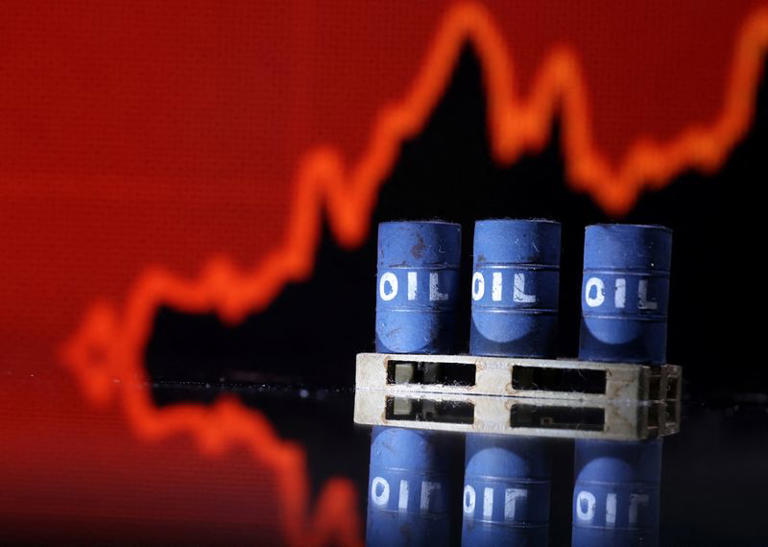In Monday’s Asian trading session, oil prices exhibited little movement as geopolitical tensions and economic uncertainties weighed on the market. Brent Oil Futures for September delivery saw a modest uptick of 0.2%, reaching $81.25 per barrel. Conversely, West Texas Intermediate (WTI) crude futures experienced a slight decline of 0.1%, trading at $77.06 per barrel as of 21:16 ET (01:16 GMT).
The catalyst for market unease was a recent missile strike on the Golan Heights, an area occupied by Israel, attributed to the Lebanese militant group Hezbollah. This strike, which occurred over the weekend, resulted in the deaths of at least 12 individuals. In response, Israel has vowed retaliation and launched airstrikes targeting southern Lebanon. This escalation in hostilities has introduced a risk premium into the oil market, as traders are increasingly concerned about the potential for a wider conflict that could disrupt oil supplies from the Middle East—a region critical to global energy markets.
Despite these heightened geopolitical risks, oil prices have only seen limited gains. The overarching factor contributing to the subdued response is the ongoing uncertainty surrounding global oil demand. Persistent concerns about China, a major consumer of oil, have exacerbated this uncertainty. China is grappling with a slowing economic recovery, which has dampened expectations for robust oil demand. This economic sluggishness has been a significant factor in the steep losses observed in the oil market over the past few weeks.
Adding to the market’s woes is the prospect of an oversupply in the coming months. Increased oil production from the U.S. and other non-OPEC countries has led to an accumulation of surplus in global oil supplies. This potential glut has contributed to the downward pressure on oil prices, making it difficult for the market to sustain upward momentum despite geopolitical tensions.
Furthermore, market sentiment is cautious as investors await the outcome of the U.S. Federal Reserve’s policy meeting later this week. The Fed is widely anticipated to keep interest rates unchanged. However, there is growing speculation about a possible rate cut in September, driven by recent soft inflation readings and optimistic remarks from Fed officials. This potential shift in monetary policy is adding another layer of complexity to market dynamics, as traders consider the implications for economic growth and oil demand.
In summary, while geopolitical tensions in the Middle East, particularly the recent missile strike attributed to Hezbollah, have introduced volatility into the oil market, the impact on prices has been tempered by broader concerns over weaker demand and potential supply imbalances. The market remains on edge, closely monitoring both international developments and domestic economic indicators, including the upcoming Fed meeting and its potential influence on future oil price movements.
